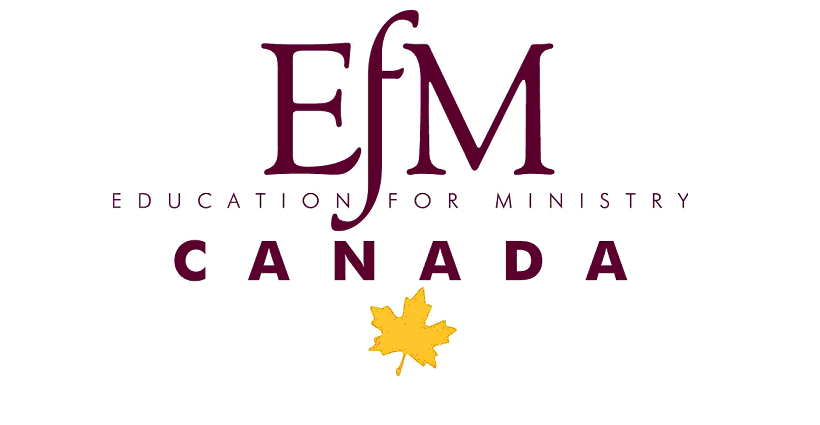Not that long ago, ministry was seen as the work of the clergy.
In the old induction service for new rectors, the priest promised to do all kinds of things, but there was essentially one question for the laity: Will you pay, pray and obey?
But in the nineteen-seventies that theory was turned upside down, as the church recognized that all of us are ministers, called to live our faith, not only within church walls, but in our homes, and in our work in the world.
The work of the clergy is to encourage and support the laity in their life and witness in wider society.
This also means that, in an increasingly secular world, lay people need to be better equipped for their ministries.
Enter EfM (Education for Ministry), designed specifically for lay people.
EfM was begun in 1975 in the Episcopal ChuEducation for ministry can transform livesrch USA, with EfM Canada being formed in 1985.
The program offers — one year at a time — four years of small-group study covering the Hebrew Scriptures, New Testament, Church History and Christian Ethics, with Theological Reflection (TR) at its core.
In short, EfM provides us with an answer to the question, “How can I discern and exercise my ministry in my daily life?”
For 36 weeks each year EfM groups meet weekly for a couple of hours to worship together, share insights from their studies, and discover the art of Theological Reflection, by connecting tradition, culture, their own beliefs and how we can apply them in daily life and work. There are now thousands of EfM graduates worldwide.
All groups are led by trained mentors. Many participants describe EfM as transformative. Mentor training is available if you would like to explore that possibility.
Now is the time to register for the 2018-2019 year and for mentor training, being held May 25–27.
For more information, contact the Niagara diocesan coordinator, Peter Davison below or Jane Wyse at synod office.

Viewing 2026 Through a Different Lens